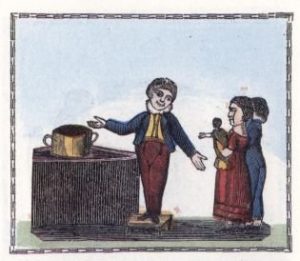
A nursery rhyme is a traditional poem, song, or even folk lore. The usage of these date back to late eighteenth century into the nineteenth century. These rhymes usually tell a story and even sometimes a parable of real life and decisions we can make, along with the outcome of such choices. These include Ring Around the Rosie, Mary, Mary Quite Contrary, and the one we are speaking of in this article Peter Piper and his famous peck of pickled peppers.
When, Where, And Why Was It Written
The famous tongue twister was first published in London in 1813 by John Harris. It appeared in Peter Piper‘s Practical Principles of Plain and Perfect Pronunciation. This published article had this and other tongue twisters for each letter of the alphabet. The rhyme seems to have been around much longer than this however. The identity of Peter in the rhyme for some indicates it refers to Peter Poivre, a French Mauritian government official who examined Seychelle’s potential for cultivating spices. That seems to be the most prominent of theories whom the rhyme is speaking of. Peter Poivre was well known for being able to smuggle cloves and nutmeg out of Dutch East India Company which controlled the Spice Island’s at the time and grow them, in effect breaking up the Dutch monopoly.
Where Do We Generally Hear This Rhyme
The rhyme will usually be heard in school’s usually in the early Kindergarten years on up to middle school. The rhyme has been told to young children in England and in America for many generations.
The Use And Meaning
There are some K-3rd grade teachers who use this rhyme as a great resource tool. The literacy activities can be done with a whole class reconstructing the rhyme, studying word patterns, independently as the teacher talks through them helping students learn. The tongue twister helps children with speech skills and even older children that may need additional speech therapy. The meaning of the rhyme is quite simple, in English terms since this rhyme originated from England the word “peck” stands for a measurement. The Old English word for pepper is piper which is an Old English surname. The trading out of Peter Pepper to Peter Piper just makes linguistics since. The person Peter would be a worker who stated that he had picked more pepper but in the rhyme it poise’s the question if he did indeed do this feat than where is all his peppers? This indicates that perhaps Peter was being boastful and lazy. Any other meaning has not really been found for this wonderful play on words.